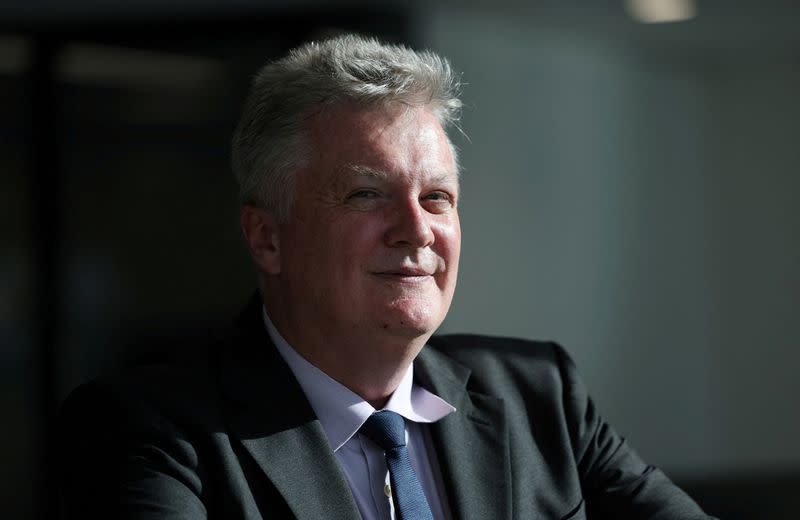BoE likely to overhaul its forecasting after inflation shocks, Pill says

By William Schomberg
(Reuters) -The Bank of England will probably adopt a new, scenarios-based system for economic forecasting, allowing it to show what might happen to interest rates in the event of shocks such as a total closure of the Red Sea to shipping, a top BoE official said.
The British central bank, like others, was criticised for underestimating the jump in inflation after the COVID pandemic and Russia's invasion of Ukraine. It is now awaiting a review of its forecasting by former Federal Reserve Chair Ben Bernanke.
BoE Chief Economist Huw Pill said on Friday that he favoured a system that involved "more communication on the 'What ifs'", rather than focusing on a central projection for the economy and inflation.
"So what's kind of interesting for us to know internally, and important for people to know externally, is: If the Strait of Hormuz were to close, what would we do?" Pill said in a speech at Cardiff University Business School.
"That's probably more important to know than whether it's a 10 or 15% probability that the Strait of Hormuz will close, and I think that's probably what the next iteration of our communication will need to embody."
Pill said Bernanke would report back to the BoE in April and his findings could prove to be a "once in a lifetime opportunity for us to modernise our monetary policy framework".
He said he hoped the BoE would get the resources and be empowered for that kind of change.
Other interest rate-setters at the BoE have also backed the idea of moving to a scenarios-based system.
The BoE currently condenses much of its thinking on the outlook for the economy into its central inflation forecast, which it uses as a way to send a signal about its possible next interest rate decisions to investors.
While that worked well during the 1990s and early 2000s when inflation was low, it has proven less reliable after a string of major economic shocks, starting with the global financial crisis in 2007-08, followed by Brexit, COVID and the oil and gas price surge that was triggered by Russia's invasion of Ukraine.
Pill also used his speech to reiterate that he did not expect the BoE to cut rates soon.
"In my baseline scenario, the time for cutting Bank Rate remains some way off," he said.
"I need to see more compelling evidence that the underlying persistent component of UK CPI inflation is being squeezed down to rates consistent with a lasting and sustainable achievement of the 2% inflation target before voting to lower Bank Rate."
Financial markets are currently pricing in a first quarter-point rate cut by the BoE in August.
Pill was among the majority of members of the BoE's Monetary Policy Committee who voted at the central bank's last meeting to keep interest rates at a 16-year high of 5.25%.
His comments on Friday echoed those he made on Feb. 16 when he said the BoE would probably have to wait "several more months" before it could be sure that inflation pressures were no longer persistent.
In his latest speech, Pill said that monetary policy could remain restrictive even after the BoE starts to cut rates.
He also said real interest rates would rise as inflation and shorter-term inflation expectations ease back.
"The MPC will need to take this into account in setting Bank Rate," Pill said.
(Reporting by William Schomberg in London; Editing by David Milliken, Alistair Smout and Hugh Lawson)

 Yahoo Finance
Yahoo Finance 